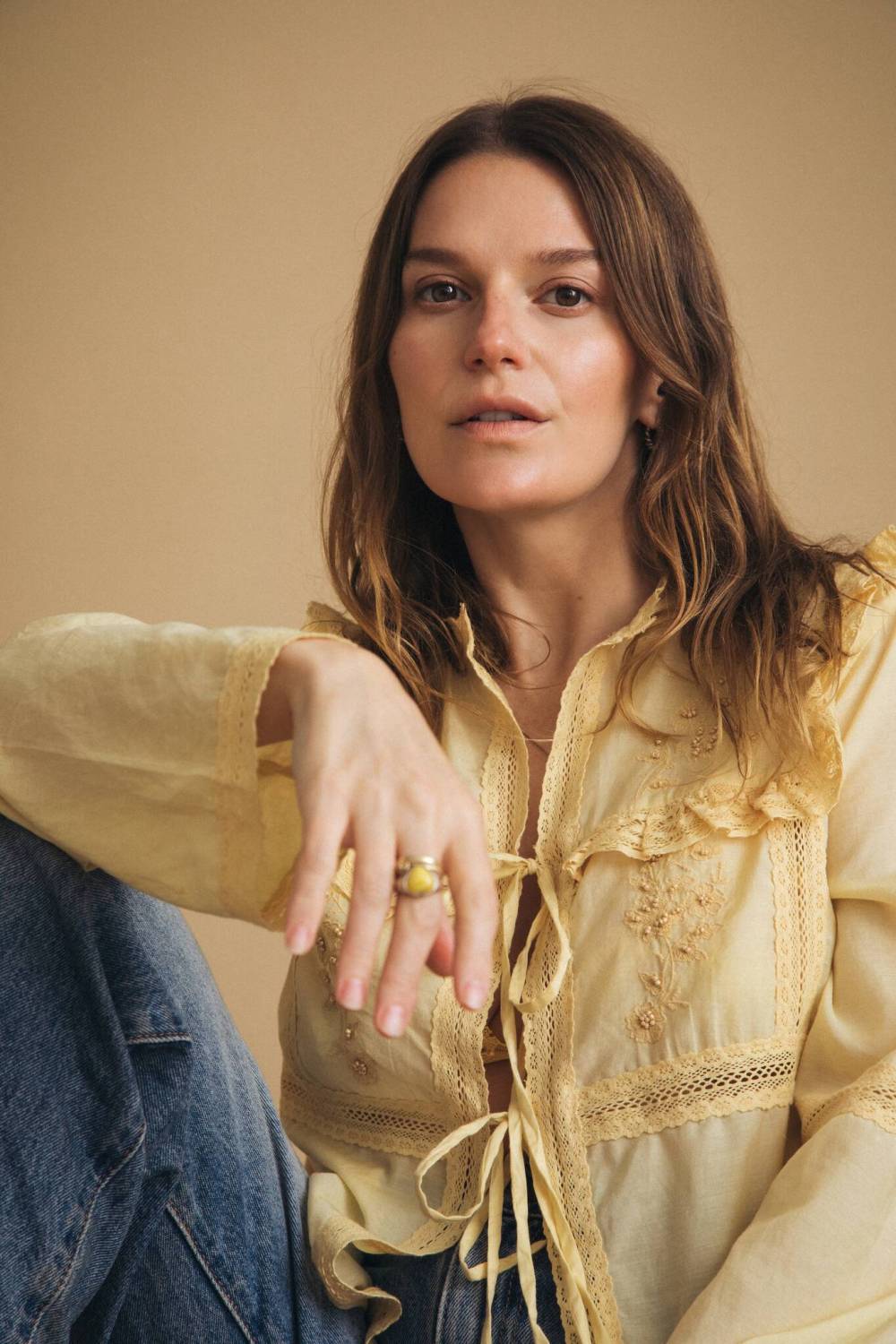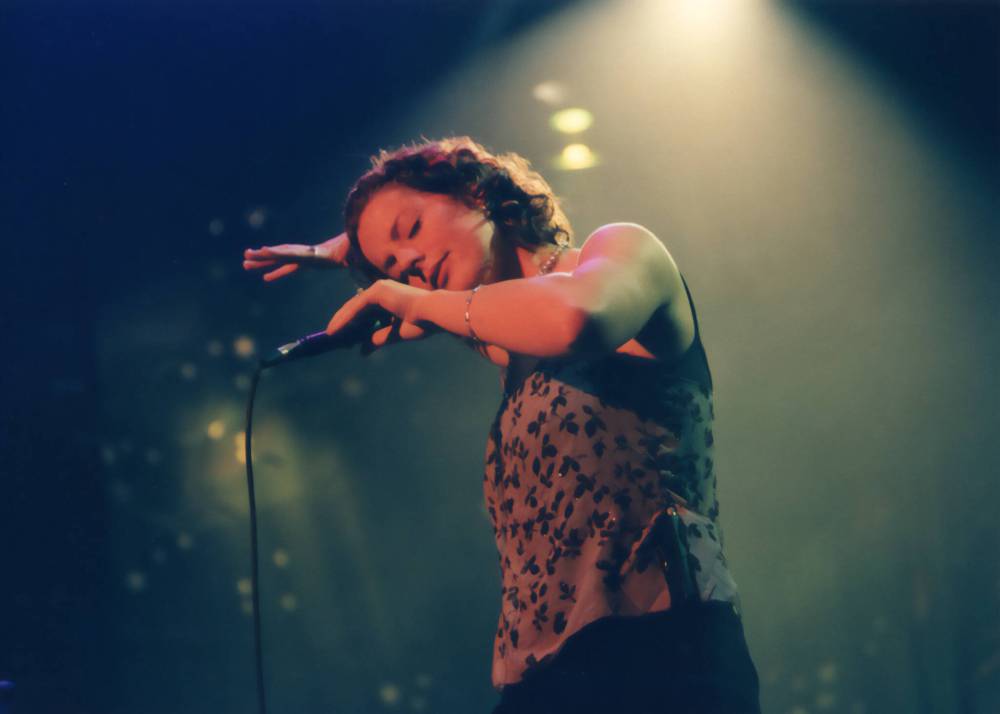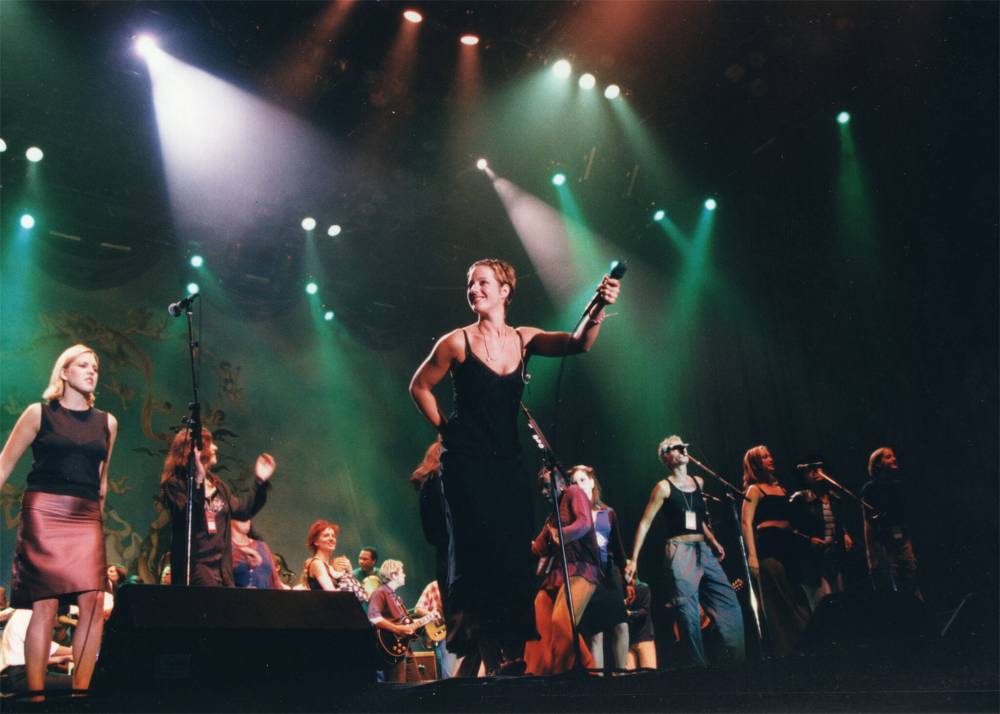Ladies’ night New documentary Lilith Fair: Building a Mystery revisits touring festival, gives it the overdue kudos it deserves
Read this article for free:
or
Already have an account? Log in here »
To continue reading, please subscribe:
Monthly Digital Subscription
$1 per week for 24 weeks*
- Enjoy unlimited reading on winnipegfreepress.com
- Read the E-Edition, our digital replica newspaper
- Access News Break, our award-winning app
- Play interactive puzzles
*Billed as $4.00 plus GST every four weeks. After 24 weeks, price increases to the regular rate of $19.00 plus GST every four weeks. Offer available to new and qualified returning subscribers only. Cancel any time.
Monthly Digital Subscription
$4.75/week*
- Enjoy unlimited reading on winnipegfreepress.com
- Read the E-Edition, our digital replica newspaper
- Access News Break, our award-winning app
- Play interactive puzzles
*Billed as $19 plus GST every four weeks. Cancel any time.
To continue reading, please subscribe:
Add Winnipeg Free Press access to your Brandon Sun subscription for only
$1 for the first 4 weeks*
*$1 will be added to your next bill. After your 4 weeks access is complete your rate will increase by $0.00 a X percent off the regular rate.
Read unlimited articles for free today:
or
Already have an account? Log in here »
In the opening moments of Lilith Fair: Building a Mystery, a new documentary about the pioneering all-women touring festival co-founded by Canadian icon Sarah McLachlan in the late 1990s, there’s a series of TikTok videos fronted by gen Z women expressing wonder and astonishment that something like that ever even existed.
Movie preview
Lilith Fair: Building a Mystery
Directed by Ally Pankiw
99 minutes
Streaming on CBC Gem Wednesday
“There was an all-female music festival from 1997 to 1999 — and I am shook to my core,” one woman says.
Ally Pankiw, the film’s director, is not surprised younger generations have never heard of Lilith Fair.
“It was not celebrated for how massive it was,” says the Canadian film/TV writer and director (Feel Good, Shrill). “It was so commercially successful. It changed so many artists’ trajectories and careers. It raised so much money for charity.
“It was just, like, this miracle.”
But it was also the victim of rank sexism that permeated popular culture in that era. This was a time, remember, when radio programmers wouldn’t play two female singers back to back. Despite being the top-grossing music festival of 1997 featuring the biggest names in music, Lilith Fair became a late-night TV punchline.
Even traditional media was vicious, deriding it as cutesy or, worse, dubbing it Vulvapalooza.
And so, Pankiw, 38, wanted to offer a much-needed corrective with Lilith Fair: Building a Mystery, which was co-produced by actor/filmmaker Dan Levy (Schitt’s Creek) and made its première at the Toronto International Film Festival this past weekend.
Ahead of its arrival on CBC and CBC Gem on Wednesday, the Free Press talked to Pankiw about what we got wrong about Lilith Fair, and what the festival’s legacy really is.
This conversation has been lightly edited for length and clarity.
Free Press: So why Lilith Fair, and why now?
Ally Pankiw: The reason I wanted to make the doc is actually to almost be corrective in what I was taught that Lilith was. I knew about it as a young girl, and I knew about all those artists, and I loved all those artists — they were the soundtrack to my childhood and my teens. But as I entered my later teens and my 20s, pop culture was very focused on telling us to hate ourselves as young women, that the things we naturally are drawn to and enjoy, that are maybe more feminized or feminine, don’t have as much value.
So, I was kind of taught a trivialized version of Lilith. It was just misremembered. Especially in the era that I was learning about it and seeing it talked about on The Simpsons or late night or whatever. People don’t know about it because we often hide, undermine and trivialize women’s progress and women’s contributions, so it’s not a surprise to me that people even younger than myself don’t know about it at all.
TAYLOR JAMES PHOTOS Ally Pankiw, director
FP: We are around the same age and watching the doc was certainly eye-opening for me because, you’re right: all I remembered about Lilith Fair were the jokes about it and isn’t that a sad commentary. With that in mind, the doc fits into a larger reckoning we’re currently having with the misogynist, Girls Gone Wild-culture of the late 1990s and how it shaped us.
AP: Much of my life and my career and my work has been trying to unlearn and reframe the ways that pop culture in that time taught me how to look at myself as a young woman and as a gay person. So yeah, (making the doc) has been a very cathartic experience.
FP: You interviewed practically everyone involved — Sarah McLachlan, Jewel, Sheryl Crow, Erykah Badu, Liz Phair, Paula Cole, the list goes on and on — as well as younger musicians such as Olivia Rodrigo, who was born well after Lilith Fair, and Brandi Carlile. Tell me about what it was like to hear this history — and how they feel about it now — from these women themselves?
AP: It was just incredible to hear their range. They were so vulnerable and emotional and joyful, but they also had such an acerbic sense of humour about having to have come up in that industry at that time. They were all really funny. They all had a lot of anger, rightfully so. They were the best conversations, because everyone was just so open.
Again, we are having this moment in pop culture where we are going, ‘That was a crazy time.’ What we allowed to be in the mainstream and to be on TV and to shape young people’s minds — the way we talked about women, especially. I think a lot of people are having those conversations and those experiences right now. And the people that we spoke to are no exception.
FP: Obviously, Sarah McLachlan is a big voice in the film. I was so knocked out by how humble she is.
AP: She’s just perfect. She’s so Canadian, she’s so herself. She’s so pure and powerful. She’s just like, ‘What? That’s just what I wanted to do.’ She is doing things for a pure and personal reason, and that’s why it was so massive and successful, because it was coming from such an authentic place.
CRYSTAL HEAD PHOTO Lilith Fair founder Sarah McLachalan
FP: You had a mountain of archival footage to sort through, something like 600 hours. How did you focus the doc?
AP: It’s crazy, but it’s like, that’s the North Star, right? You have to kill your (darlings) when you have that much to work with. There’s full interviews we did with people that didn’t make it in the doc. It would have been 100 hours long if we used every beautiful archival clip or every amazing interview.
You have to stay really true to what you want your thematic framework and your narrative framework to be. And from the get go, it was an exploration of why it was misremembered. Why was all this joy and success and money and progress not celebrated for what it was? To me, that was the framework that we had to stay true to. As well as, obviously, telling the underdog story, and telling this incredible story of joy and revolutionary women.
FP: What did you learn about the festival that surprised you?
AP: I think what surprised me is just truly the amount of money that was given away. The charitable component, especially at that time – over $10 million? That’s nuts. It’s just so crazy to me that they were like, ‘We just want to do it. We want to give it to women’s health organizations, women’s shelters.’ It’s just wild to me at that time that they were able to pull that off, and it is just because someone was bold enough to say, ‘This is what we should do, why wouldn’t we do this?’ And then they did it.
I think it’s just such a good lesson: you can do the right thing. It’s actually incredibly easy. You just have to decide that that’s what you want to do.
BRIAN MINATO PHOTO Polaroid of Sinéad O’Connor, Sarah McLachlan and their band members backstage
FP: What, to your mind, is Lilith Fair’s legacy?
AP: I think it’s sending the elevator down, like, passing the baton. Not keeping your success for yourself. Not being a gatekeeper. And I think that’s why Olivia (Rodrigo) and Brandi (Carlile) were both really perfect modern-day examples of younger artists who keep that legacy alive and that spirit alive.
Brandi does so much work to create spaces for other artists and intergenerational spaces in music for female artists. And Olivia uses her voice to talk about and support causes that aren’t always 100 per cent popular. She’s done work in the women’s health, pro-choice and reproductive rights space. (Note: Rodrigo donated more than US$2 million from her recent Guts world tour to organizations that support girls’ education, reproductive rights and the prevention of gender-based violence.) They both just carry forward the legacy in a way that feels authentic.
To me, it really is about that saying: send the elevator back down once you’ve reached a certain level of success. Don’t gatekeep. And I think Sarah was incredible for that.
jen.zoratti@freepress.mb.ca

CRYSTAL HEAD PHOTO
Lilith Fair finale show in 1998, feauring Diana Krall, Sarah McLachlan, Angelique Kidjo, Lisa Loeb, Sam Bettens, Tara Maclean

Jen Zoratti is a columnist and feature writer working in the Arts & Life department, as well as the author of the weekly newsletter NEXT. A National Newspaper Award finalist for arts and entertainment writing, Jen is a graduate of the Creative Communications program at RRC Polytech and was a music writer before joining the Free Press in 2013. Read more about Jen.
Every piece of reporting Jen produces is reviewed by an editing team before it is posted online or published in print – part of the Free Press‘s tradition, since 1872, of producing reliable independent journalism. Read more about Free Press’s history and mandate, and learn how our newsroom operates.
Our newsroom depends on a growing audience of readers to power our journalism. If you are not a paid reader, please consider becoming a subscriber.
Our newsroom depends on its audience of readers to power our journalism. Thank you for your support.

